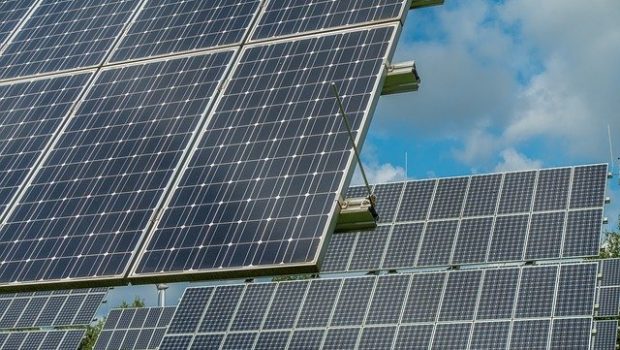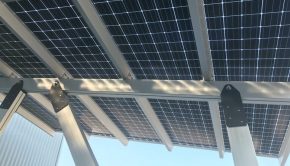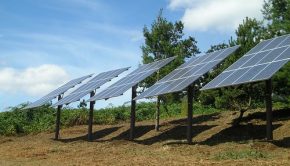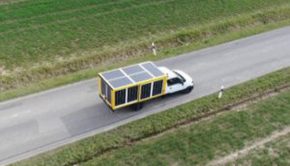Ameren sets net-zero goal and plans renewable expansion –
Ameren sets net-zero goal and plans renewable expansion –
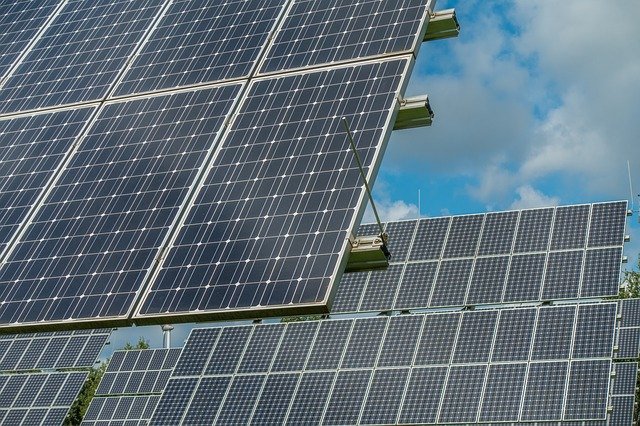
Yesterday, Ameren Corporation established
a goal of achieving net-zero carbon emissions by 2050 across all its
operations in Missouri and Illinois. The company also announced
its largest expansion of solar and wind generation capacity.
The clean energy expansion is included in
the Integrated Resource Plan (IRP) of Ameren Missouri. The IRP is a triennial
filing that sets forth Ameren Missouri’s preferred plan to transform its
electricity generation portfolio and it takes advantage of the continued
decline in the cost to build new clean energy resources.
Central to Ameren’s plan is the
commitment to net-zero carbon emissions by 2050. Milestones include reducing
carbon emissions 50% by 2030 and 85% by 2040, based on 2005 levels. The new
goals accelerate and expand on the company’s 2017 pledge and are consistent
with the objectives of the Paris Agreement and limiting global temperature rise
to 1.5 degrees Celsius.
Highlights
of Ameren Missouri’s plan to achieve this goal include:
- The company’s largest investments in renewable solar and wind energy in its history.
- Investing billions of dollars, creating thousands of jobs.
- Building on an already solid base of carbon-free generation.
- Advancing retirements of coal-fired energy centers.
- Offering customers even more clean energy choices.
- Continuing focus on reliability and affordability.
Ameren Missouri already offers customers
a range of options to increase their use of renewable energy, including programs
such as Community Solar and Neighborhood Solar.
Increasing renewable solar and wind energy investments
Ameren Missouri’s IRP includes investment
of nearly $8 billion in renewable energy over the next two decades.
By 2030, the company would add 3,100 megawatts (MW) of renewable generation
reflecting a combined investment of approximately $4.5 billion. Renewable
energy would increase to a total of 5,400 MW by 2040. Investments are already
underway, with the planned acquisition of two Missouri-based wind energy
facilities in the next few months for approximately $1.2 billion.
The IRP evaluates a range of customer
energy needs and a variety of ways those needs can be met through building new,
cleaner generation resources, as well as expanding customer renewable energy,
energy efficiency and demand response programs.
Ameren Missouri continues to invest in
its existing carbon-free energy sources – including nuclear, hydro and solar –
while also evaluating and pursuing additional clean energy innovations. Nearly
30% of Ameren Missouri’s current energy generation comes from these sources. In
the future, Ameren Missouri expects to seek an extension of the operating
license for the Callaway Energy Center beyond 2044.
“Climate change is one of the most
important issues of our time. Our transformative plan to add large amounts of
wind and solar energy generation will ensure all customers, regardless of where
they happen to live or their household income, have access to clean, reliable
and affordable energy,” said Gwen Mizell, vice president of
sustainability and electrification at Ameren. “Our plan is a progressive
move toward building a sustainable energy future.”
Advancing the retirement of coal-fired energy centers
In recognition of changing market
economics, as well as consideration for maintaining reliability through the
transformation to renewable energy, the company’s plan includes advancing the
retirement of two of its coal-fired energy centers.
The Sioux Energy Center is now planned to
retire in 2028 and the Rush Island Energy Center’s retirement is planned for
2039. More than 75% of the company’s current coal-fired energy generating
capacity is expected to retire by 2040, and all coal-fired energy centers are scheduled
to retire by 2042. Planned retirements begin in 2022 with the Meramec Energy
Center.
The IRP is filed with and reviewed by the
Missouri Public Service Commission (PSC) every three years. Major aspects of
the plan, including construction of new renewable energy generation resources,
customer energy efficiency programs and renewable and demand response programs,
will require separate PSC approval. Where necessary, Ameren Missouri will also
need to obtain federal and local approvals and interconnection agreements so
that it can use transmission services to connect renewable energy resources
with Ameren Missouri customers.

